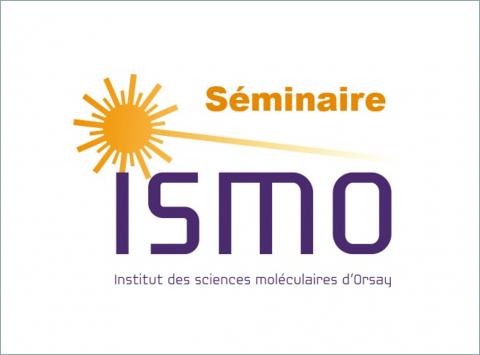
Séminaire de Sebastian Riedel en mode HYBRIDE
Hot Chemistry in a Cold Environment : From Small Molecules to Technical Applications
par Sebastian Riedel
FU Berlin
A powerful technique to investigate fragile species is matrix-isolation spectroscopy in which ions or molecules can be trapped under cryogenic and inert conditions. However the preparation of such matrices can be challenging especially if ions should be transferred into the matrix. Our group developed a simple method to prepare such ionic species by pulsed salt laser-ablation technique.
In this context the formation of several free polyhalides like [F3]–, [Cl3]– could be characterized under cryogenic conditions in rare-gas matrices. , Thereby the matrix environment is a crucial factor as shown by theoretical modeling of the interaction between rare-gas matrices and a trifluoride guest anion. Beyond these free ions, new techniques have been developed to prepare ion-paired complexes like MN3, MC3, or M[AuF4] under matrix-isolation conditions.
Based on these investigations novel synthetic strategies have been developed to prepare such species also in bulk quantities which can now be used as chlorine storage materials and afterwards applied in industrial processes like the phosgene production.
Contact pour demander le lien
http://www.ismo.universite-paris-saclay.fr/spip.php?article2719
Hot Chemistry in a Cold Environment : From Small Molecules to Technical Applications
par Sebastian Riedel
FU Berlin
A powerful technique to investigate fragile species is matrix-isolation spectroscopy in which ions or molecules can be trapped under cryogenic and inert conditions. However the preparation of such matrices can be challenging especially if ions should be transferred into the matrix. Our group developed a simple method to prepare such ionic species by pulsed salt laser-ablation technique.
In this context the formation of several free polyhalides like [F3]–, [Cl3]– could be characterized under cryogenic conditions in rare-gas matrices. , Thereby the matrix environment is a crucial factor as shown by theoretical modeling of the interaction between rare-gas matrices and a trifluoride guest anion. Beyond these free ions, new techniques have been developed to prepare ion-paired complexes like MN3, MC3, or M[AuF4] under matrix-isolation conditions.
Based on these investigations novel synthetic strategies have been developed to prepare such species also in bulk quantities which can now be used as chlorine storage materials and afterwards applied in industrial processes like the phosgene production.
Contact pour demander le lien
http://www.ismo.universite-paris-saclay.fr/spip.php?article2719